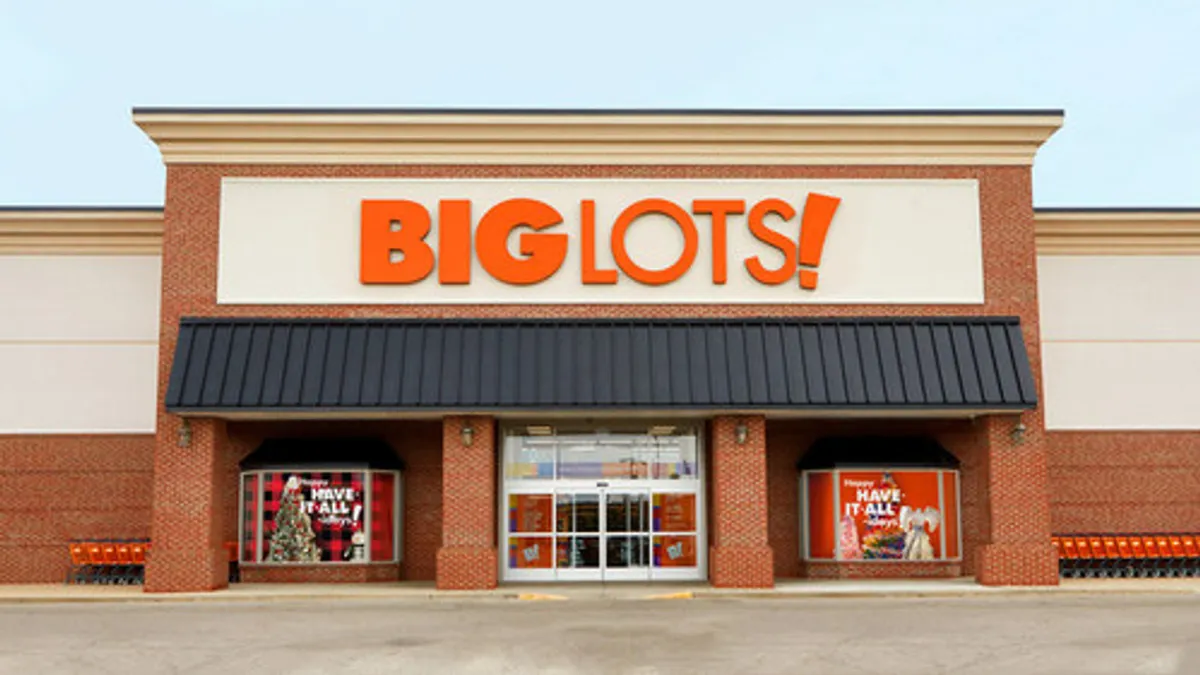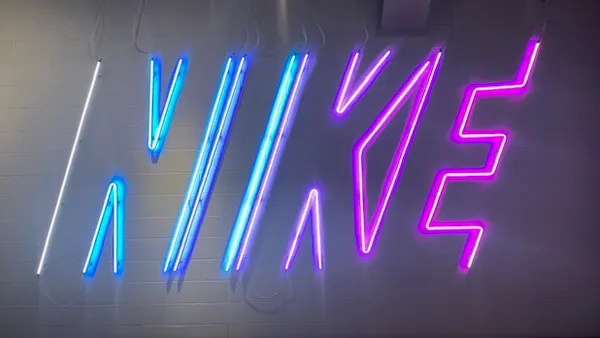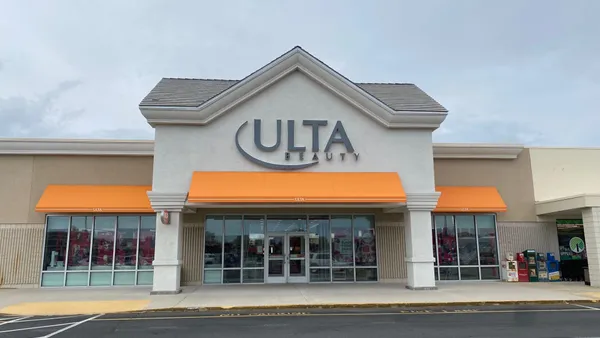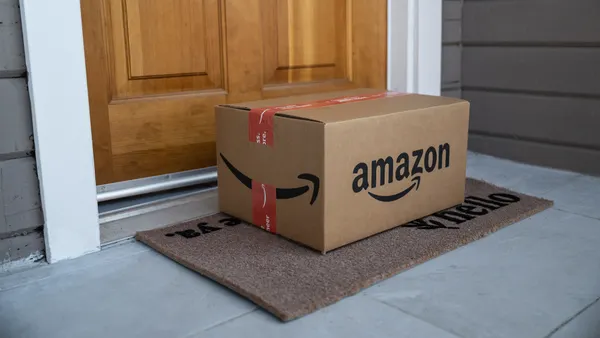Dive Brief:
- Big Lots on Friday received court approval from a Delaware-based bankruptcy judge to sell most of its assets and business operations to an affiliate of private equity firm Nexus Capital Management, the companies announced in a press release.
- Nexus agreed to pay $2.5 million in cash, pay off debts to entities to be identified by Big Lots and to assume certain liabilities, court documents show. Nexus was the company’s previously announced stalking horse bidder. It won the bankruptcy auction after no other qualified bids were submitted. The sale is expected to close in early December.
- Big Lots filed for Chapter 11 on Sept. 9, claiming assets and liabilities of $1 billion to $10 billion. On the same day, the retailer said it had reached an agreement for $707.5 million in post-bankruptcy commitments including $35 million in new financing from lenders.
Dive Insight:
Big Lots’ financial performance increasingly worsened over the last year. The company ended 2023 with a 14% net sales drop to $4.72 billion, down from $5.47 billion the prior year. For Q1, the retailer reported a net loss of $205 million, an operating loss of nearly $193 million and long-term debt of nearly $574 million.
Days after reporting its first quarter earnings, the company issued a going concern notice. The company postponed its Q2 earnings announcement and filed for bankruptcy protection shortly after. Also this year, Big Lots received amended credit and loan terms that allowed it to close up to 315 underperforming stores. As of Monday, the company’s website listed 1,116 stores in the U.S.
Nexus managing director Evan Glucoft said in a statement that its acquisition of Big Lots reflects confidence in the retailer’s core proposition and growth prospects. “We strongly believe that Big Lots is on the brink of capitalizing on its potential, and we look forward to working with the talented Big Lots team to accelerate its mission and realize the opportunities ahead,” Glucoft said.
A contributing factor to Big Lots’ bankruptcy was customers cutting back on discretionary spending, the company previously said. But now, with a financial reset, Big Lots can reclaim its position as a leader in the extreme value sector of retail, CEO Bruce Thorn said in a statement.
“Partnering with Nexus, which believes in our business and long-term potential, will ensure that Big Lots is best positioned to emerge as a stronger company for 2025 and beyond,” Thorn said.
Representatives from Big Lots and Nexus did not immediately respond to a Monday question from Retail Dive asking if Thorn would remain in charge or if there would be any other leadership changes as the retailer transitions from a publicly traded company to private equity ownership. Nexus’s brand portfolio also includes shoe retailer Toms, Dollar Shave Club and Lamps Plus.
Neil Saunders, managing director of GlobalData, said the pending sale to Nexus is good news for the retailer, as it will provide desperately needed financial stability, which in turn provides a chance to reset the business.
“However, while the deal gives Big Lots a fighting chance it does not, at a stroke, remedy all the problems that plague the company,” Saunders told Retail Dive in emailed comments. “A change of strategy is also needed. Big Lots needs to start focusing on genuine value for money and provide really competitive price points.”















